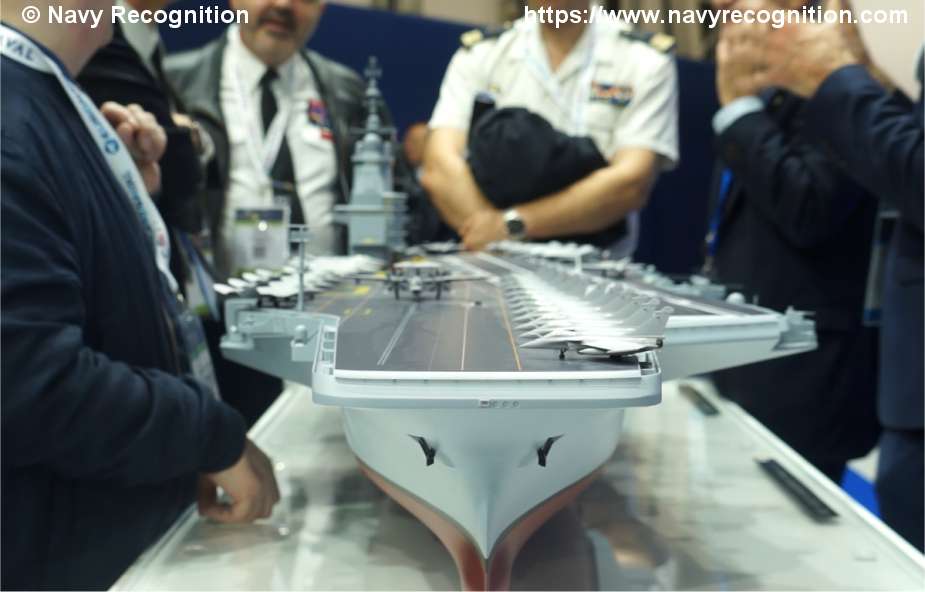According to information published by Politico on October 10, 2023, the European Commissioner for Internal Market Thierry Breton has voiced the necessity of a fortified European defense mechanism. Breton is already championing the idea of a dedicated aircraft carrier.
Follow Navy Recognition on Google News at this link
 Model of the future PANG aircraft carrier. (Picture source: Navy Recognition)
Model of the future PANG aircraft carrier. (Picture source: Navy Recognition)
Aircraft carriers are more than just floating airbases; they symbolize power and influence, allowing nations to project force, respond to crises, and demonstrate their technological capabilities.
For the European Union, possessing its own aircraft carrier would mean a step towards a unified defense front, potentially reducing reliance on NATO and asserting its stature as a global power.
However, several challenges lie ahead. With Brexit's aftermath, France is the only EU member with the capability to build a standard aircraft carrier. While Italy has experience with light aircraft carriers, crafting a full-fledged one is a distinct challenge.
The financial aspect is another hurdle; aircraft carriers come with a hefty price tag. Securing funds for such an endeavor would demand substantial commitment from EU member states, a task made complex given the diverse economic landscapes across Europe.
Operational questions also arise: the management and operation of this carrier would need clear delineation, be it under a unified EU naval command or shared responsibilities among nations.
While President Macron's vision of a "Europe of Defense" resonates with some recent defense acquisitions by countries like Germany and Poland suggest varied strategic priorities within the EU, potentially making consensus-building a challenge.
The ambition for a European aircraft carrier signifies a desire for a more autonomous and cohesive defense strategy. Yet, its realization hinges on more than just resources; it demands political will and strategic alignment among the member states.



